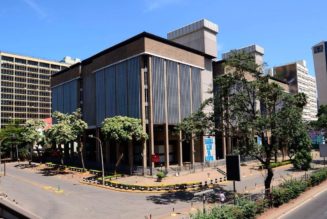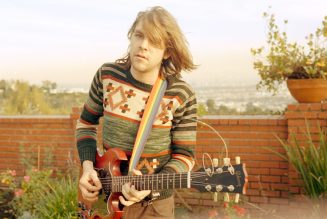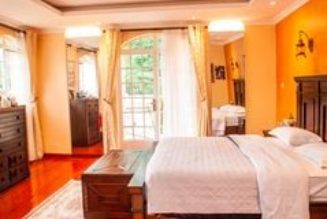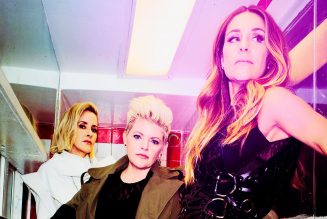Gardening
Plants and Flowers Expo: Kenya’s garden society fresh as ever on 100th anniversary
Tuesday June 13 2023
A section of a garden pictured during the KHS Centenary Plant and Flower show on June 10, 2023, at the Sarit Expo Centre, Nairobi. PHOTO | BILLY OGADA | NMG
The Kenya Horticultural Society turns 100 this year, but its plants and flowers look just as fresh, lush, and lovely as they did on the day the society was born, June 15th, 1923.
“Many of the first members of the Horticultural Society belonged to the Agricultural Society but wanted to focus less on agricultural issues and more on gardening,” Katy Barnes, Chairman of this year’s KHS Flower and Plant Show told the BDLife last weekend when the Nairobi District celebrated its centenary.
Custom flower vases pictured on June 10, 2023, during the KHS Centenary Plant and Flower show at the Sarit Expo Centre, Nairobi. PHOTO | BILLY OGADA | NMG
Based at Sarit Centre’s new giant Expo Centre, Katy said this year’s Centenary show was the biggest that the society has had in several years.
That seemed fitting since it was also the time when society was judging the best plants and flowers grown in the past year.
The Flower and Plant Show officially opened last Friday, but the 11 local judges and one guest judge from the UK had spent all day Thursday visiting all the presenters to select the best displayed and best-grown plants and flowers.
There were many criteria that the judges used to assess the plants, leading to no less than 30 awards being handed out Thursday night, two of which were gold medals.
The gold medal winners were the Orchid Society for the quality of its members’ orchids and Naina Parrin for the high standard of her plant display.
The awards were presented by the UK guest judge Rosy Hardy, who also gave one of several talks and workshops run during the weekend.
Ms Hardy is widely revered for her gardens which have won no less than 77 gold medals.
Out of those, she earned 24 at the prestigious Chelsea Garden Show while the rest were given to her at garden shows held across the UK and overseas, in Sweden, Australia, and Germany.
The UK has taken gardening so seriously over the years, they have set the standards, starting at the Royal Horticultural Society (RHS).
The RHS exam is the one every judge must pass before they can even begin to be taken seriously for their appraisal of people’s plants.
Katy admits that the highest percentage of members in KHS, which includes 10 districts scattered all over the country, are European and the second highest are Asian.
But the interest among Kenyans is rising rapidly such that several won awards this year for their plant displays.
They were George Barua who has been participating in the annual shows for years and Joseph Kihoro who has his own nursery and plant business called Intri-scapes in Limuru.
The other award-winning Kenyan gardener is Paul Mwai who received a commendation this year for his vegetables, including his kale (sukuma wiki), spinach, and artichokes.
A section of a garden pictured during the KHS Centenary Plant and Flower show on June 10, 2023, at the Sarit Expo Centre, Nairobi. PHOTO | BILLY OGADA | NMG
Mwai has been winning awards annually at the plant and flower show. But this year we discovered he is also growing and selling pots filled with seedlings of everything from blueberries, pomegranates, and grapes to guava, papayas, and lemons.
He told BDLife that he has shifted his nursery from Nairobi to Kikuyu, which enabled him to expand his business. Now he also sells everything from birdbaths and vertical gardens to a variety of natural oils. He also sells pots as does Katy who also has a plant business.
“Nearly all our participants have garden-related specialities,” she said. “Mine is selling house plants which is what I do in both of my shops [in Karen and Village Market], which we call Kuzi, named after the trade wind [that historically hits the Coast between June and mid-September].”
Despite the centenary show being organized by the Nairobi district of KHS, Katy made a point of inviting members of all 10 districts to take part in the event. Not all could make it.
However, one of the most interesting displays came from Gilgil. Members from there created a Keyhole Garden which has gained international attention since it offers a means of gardening well suited for lands that are dry and rocky.
The name, Keyhole Garden derives from the shape of the garden which is circular with a small opening sufficient for someone to walk into.
The Keyhole garden pictured on June 10, 2023 during the KHS Centenary Plant and Flower show at the Sarit Expo Centre, Nairobi. PHOTO | BILLY OGADA | NMG
The outer wall of the circle can be built with stones. There’s also an inner circle so that most of the area inside the larger circle can be filled with compost (made of manure, sticks, and food waste, like banana peels, all of which are left to decompose).
Seeds are then planted directly in the compost which, over time, provides an organic fertilizer that’s highly nutritious for the plants.









